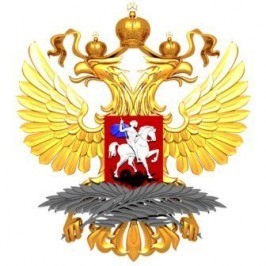On 22 July 2022 interconnected agreements were signed in Istanbul on Ukrainian grain exports and the promotion of Russian food and fertilisers to international markets. That package deal, which involved Russia, Türkiye, Ukraine and the UN Secretariat, is aimed at ensuring global food security.
As part of the Black Sea Grain Initiative on Ukrainian grain exports, the Joint Coordination Centre started operating in Istanbul on 27 July, and the first vessel sailed from the port of Odessa on August 1 in accordance with the agreed inspection and control procedures. According to the UN updates as of 26 October, 390 vessels have carried 8,899,048 tonnes of agricultural goods (corn made up 41 percent of the cargo) from the ports of Odessa, Yuzhny and Chernomorsk via the Black Sea humanitarian corridor.
However, the geography of recipient countries does not correspond to the declared humanitarian goals. Half of the deliveries were shipped to the EU and industrialised countries such as Britain, Israel and South Korea. The countries that badly needed these goods, namely Somalia, Ethiopia, Yemen, Sudan and Afghanistan, received only 3 percent of the shipments, primarily under the UN World Food Programme (WFP). In this connection, the UN leadership has changed the name of the initiative from humanitarian to commercial and highlighted the importance of stabilising global food prices.
It is notable that the share of Russian agricultural goods on the global markets is not smaller than that of Ukraine. We are ready to export some 30 million tonnes of grain by the end of the year, first of all wheat, and to increase deliveries to 50 million tonnes in light of a rich harvest this year. About 10.5 million tonnes of grain (77 percent of it being wheat) have been dispatched to Asia (62 percent of the total) and Africa (33 percent). The trend is evident: whereas Ukrainian cargo goes via the humanitarian corridor to Europe and other industrialised countries, Russian exports are sent to the countries that need them in Africa and Asia.
Moreover, unlike Ukraine, Russia is a leading global exporter of fertilisers, without which not only the consumer countries but also the food producing countries may face hunger. However, Russian companies are unable to make commercial fertiliser deliveries or send some 300,000 tonnes of fertilisers to the poorest countries free of charge. This cargo is sitting in warehouses in Latvia (80 percent of the total amount), Estonia, Belgium and the Netherlands whose authorities have blocked its delivery under the WFP.
The main reason for this is the unilateral Western sanctions, the negative effect of which should be neutralised through the implementation of the second Istanbul agreement – the Memorandum of Understanding between the Russian Federation and the UN Secretariat on assisting the promotion of Russian food and fertilisers to international markets. Despite the declarations made in Washington and Brussels on excluding foods and fertilisers from the restrictions, Russian suppliers and producers are still plagued by problems with bank payments, insurance policies, chartering vessels and receiving permits to enter ports. In fact, the declared exclusion is not effective. The Americans and Europeans seem to be punishing African, Asian and Latin American countries by hindering the access of Russian agricultural goods and fertilisers to the global market.
Despite this and other shortcomings in the implementation of the Istanbul agreements, Russian representatives at the Joint Coordination Centre continue to work diligently to carry on the Black Sea Grain Initiative. It took three weeks to export the first 1 million tonnes of grain, whereas this amount is now delivered within one week. This robust pace and effectiveness are largely ensured thanks to the hard work of our professionals. For example, during the inspection of one of the grain vessels, three members of the Russian inspection group suffered from smoke inhalation due to violations of the obligatory ventilation procedure after grain fumigation prior to shipment.
In addition, an artificial traffic jam has been created in the port of Istanbul to increase pressure on our inspectors, weaken their attention and force them to accelerate inspections. Since the launch of the Black Sea Grain Initiative, over 70 vessels have been detained and several ships have been suspended for the repeated breaches of navigation rules in sea corridors and smuggling attempts. Such abuses of the humanitarian corridor rules must not be overlooked, especially in the context of the ongoing investigation of the route by which explosives were delivered for the 8 October terrorist attack on the Crimean Bridge.























